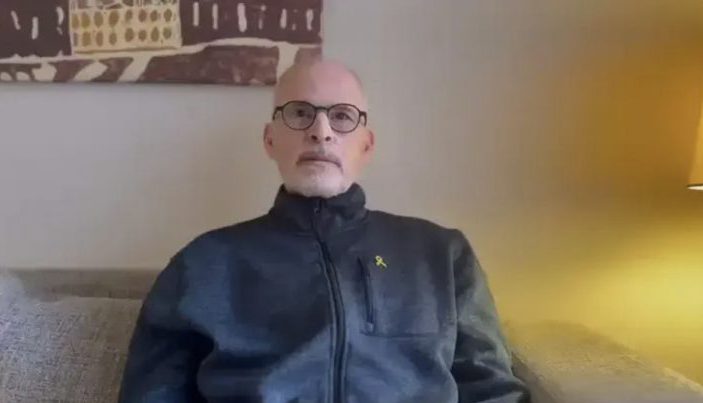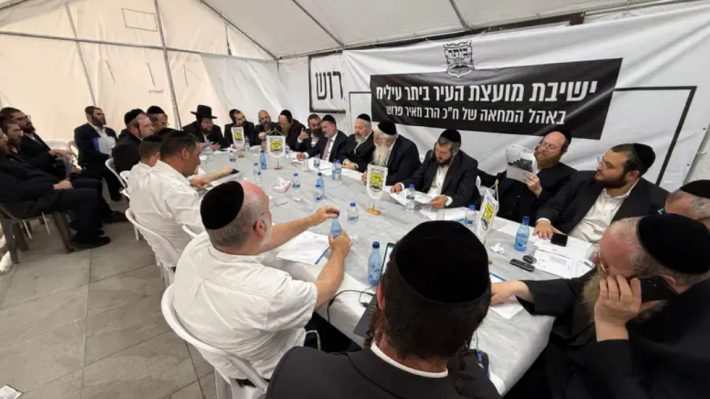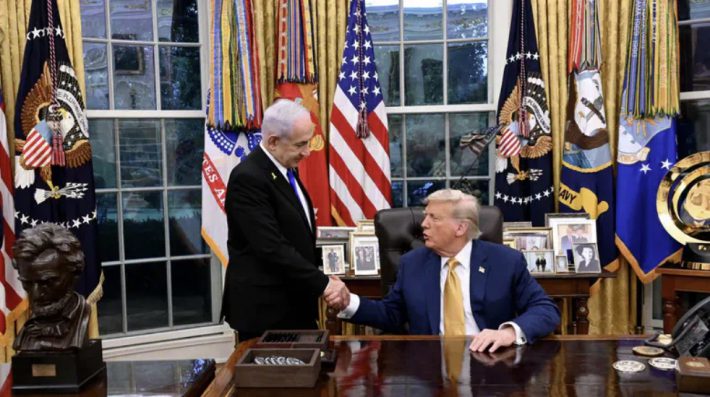Captivity survivors Keith and Aviva Siegel speak to CBS’ “60 Minutes”. Keith: After Aviva was released, the terrorists became very mean, and very cruel, and violent. They were beating me and starving me.
Captivity survivors Keith and Aviva Siegel gave an interview to CBS’ “60 Minutes” which aired on Sunday, during which they recalled the moments when they were kidnapped from their home in Kibbutz Kfar Aza to Gaza on October 7, 2023, as well as their harrowing experience in captivity.
Aviva was returned in the first hostage deal in November of 2023, while Keith was returned in January, during the most recent deal.
“We were driven into Gaza and then taken into a tunnel—feeling in danger, feeling life threatened, terrorists around us with weapons,” Keith recalled during the interview with journalist Lesley Stahl.
Stahl asked, “Could you breathe? Was there enough oxygen down there?” to which Keith replied, “We were gasping for our breath.”
Keith and Aviva recalled that they were kept in the tunnels with other women and children, endured continuous abuse, and witnessed brutality against other hostages.
“I witnessed a young woman who was being tortured by the terrorists,” Keith revealed. “I mean literal, you know, torture, not just—in the figurative sense.”
After Aviva was released and the first ceasefire ended, Keith recalled, “The terrorists became very mean, and very cruel, and violent. Much more so. They were beating me and starving me.”
Stahl pressed him further, asking if he thought the lack of food was intentional or simply a matter of scarcity. Keith responded without hesitation: “No, I think they starved me and they— they would often eat in front of me and not offer me food.”
Their captivity was marked by daily suffering, including basic human indignities. “Once a month, it was like a half a bucket of water with a cup to like pour over our body, cold water,” Keith explained when asked about personal hygiene.
The emotional toll of the captivity was immense, Keith stated. “I felt that I was completely dependent on the terrorists. My life relied on them, whether they were gonna give me food—bring me water—protect me from the mobs that would lynch me. I was left alone several times, and I was very, very scared that maybe they won’t come back and I’ll be left there. And what do I do then?”
He continued, “So maybe that was a way for them to torture me in that way, in a psychological way—make me think, ‘OK, should I escape? Should I not escape? Should I try to escape?’ But I’m pretty sure they knew I wouldn’t dare to do that because I needed them.”
Keith and Aviva spoke of Gali and Ziv Berman who are also from Kfar Aza and who are still held captive by Hamas in Gaza. Aviva passionately spoke of their plight, saying, “There needs to be a deal that will bring them back, and finish with this whole thing.”
Keith noted that he has not found peace despite returning and that he spends his time attending vigils and protests, advocating for the return of those still held in Gaza.
“My mind is still there,” he said, adding his thoughts are consumed by those left behind. “It is, every day—most of the day. You’re thinking about who’s left behind.” The program also featured testimony by captivity survivor Yarden Bibas, who recounted the cold-hearted words of his tormentors.
“[Shiri and the kids] were murdered in cold blood, bare hands,” Bibas explained. “They used to tell me—‘Oh, doesn’t matter. You’ll get a new wife. Get new kids. Better wife. Better kids.’”





